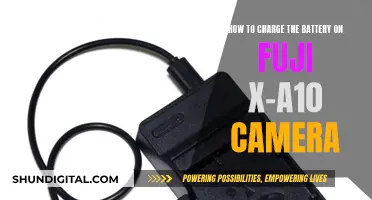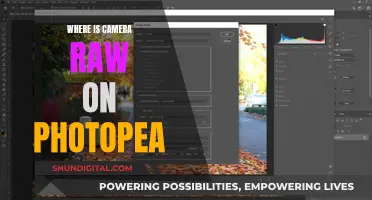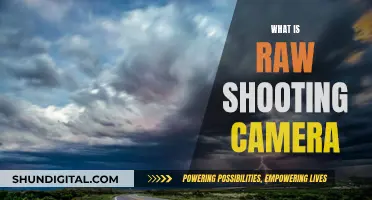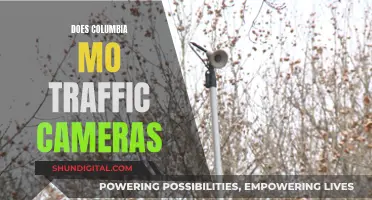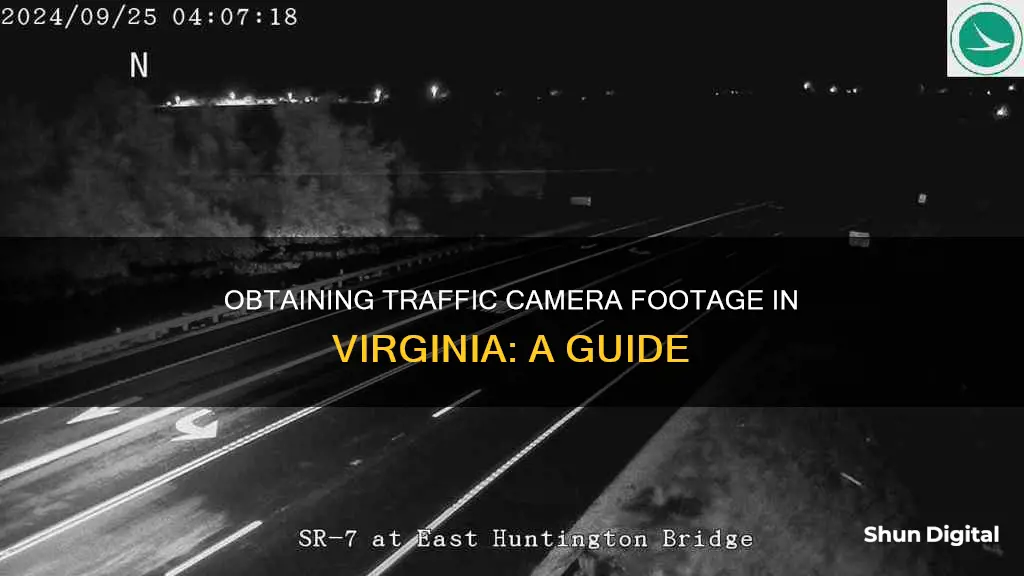
Traffic camera footage in Virginia can be obtained in several ways, including applications to local police offices, requests under the state's Freedom of Information Act (FOIA), or by subpoena. This footage can be crucial evidence in car accident cases, as it provides an unbiased record of events and can help determine liability. In Virginia, traffic cameras are often operated by state or local authorities and installed at intersections, highways, and other key traffic points. Additionally, private companies and individuals also capture and archive traffic camera footage, making it available for purchase.
| Characteristics | Values |
|---|---|
| How to obtain traffic camera footage in Virginia | File an application to local police offices, make a request under Virginia's Freedom of Information Act (FOIA), or by subpoena. |
| Traffic camera footage retention period | A few days to months, depending on the specific policies of the agency controlling the camera. |
| Traffic cameras in Virginia | Fairfax, Arlington, Richmond, Virginia Beach, and many other cities. |
| Traffic camera footage providers | Traffic Cam Archive, VDOT, Virginia 511 Web |
What You'll Learn

How to obtain traffic camera footage of a car accident in Virginia
If you need to obtain traffic camera footage of a car accident in Virginia, there are a few ways to go about it. It is your right to access this evidence, and it can be invaluable for insurance claims and legal proceedings. Here is a step-by-step guide on how to obtain traffic camera footage of a car accident in Virginia:
- Act quickly: The retention period for traffic camera footage in Virginia varies, but it is often around 90 days. It is crucial to act promptly to ensure the footage is not deleted or overwritten.
- Identify the camera(s): Determine the specific location of the accident, as this will help you identify the nearest traffic cameras. You can use resources like the Virginia Traffic Cam Archive, which provides an interactive map of traffic cameras in the state.
- Contact the relevant authority: Depending on the location of the accident, you can reach out to the Virginia Department of Transportation (VDOT) or local authorities, such as the police department or transportation offices, to request the footage. Provide them with the date, time, and specific location of the accident to facilitate their search.
- Make a formal request: You can submit a formal request for the traffic camera footage under Virginia's Freedom of Information Act (FOIA). This process may involve filling out forms and providing specific information about the accident.
- Engage legal assistance: If needed, consider contacting a car accident attorney. They can guide you through the process of acquiring the footage and ensure your rights are protected. This is especially important if you need to subpoena the footage or deal with private entities.
- Explore other sources: In addition to official traffic cameras, don't forget to check other sources of footage, such as surveillance cameras from nearby businesses or residential security cameras. Dashcam footage from police vehicles or private individuals who witnessed the accident can also be valuable.
- Preserve other evidence: While obtaining traffic camera footage is crucial, make sure to document the accident scene through photographs, witness statements, and your own recollections. This can help strengthen your case and provide additional context to the traffic camera footage.
Remember that the process of obtaining traffic camera footage may vary depending on the specific circumstances of your case and the location of the accident. Don't hesitate to seek legal advice or contact the relevant authorities for more detailed information pertaining to your situation.
Simplisafe Cameras: Battery-Powered or Direct Plug-in?
You may want to see also

Traffic camera footage as evidence in car accident claims
Traffic camera footage can be used as evidence in car accident claims and can play a pivotal role in strengthening your case. It can provide an unbiased, factual record of the incident, demonstrating the other party's negligence and the severity of the impact. This type of evidence can directly influence the compensation you receive. Here are some detailed, instructive steps to help you obtain and utilize traffic camera footage in Virginia for your car accident claim:
Understanding the Value of Traffic Camera Footage:
- Traffic camera footage serves as unbiased evidence: It provides an objective record of the events leading up to, during, and after the crash, which can be crucial in determining liability.
- Proof of negligence: The footage can show if the other driver was speeding, ran a red light, or committed any other traffic violations.
- Confirmation of impact severity: It can illustrate the force of the collision, damage to vehicles, and the post-impact position of the vehicles, providing a more accurate depiction of the accident's severity.
- Validation of your account: Traffic camera footage is a permanent record that supports your narrative and counters any disputes by the other party.
- Visual evidence for adjustors or juries: Visual stimuli can evoke a stronger reaction than just hearing or reading about the accident, helping them better understand the seriousness of the incident.
Steps to Obtaining Traffic Camera Footage in Virginia:
- Identify camera location: Determine where the accident occurred and the likely location of traffic cameras. Reference your police report or contact the local police department or Department of Transportation for this information.
- Determine camera jurisdiction: Identify which agency operates the camera, such as the local police, Department of Transportation, or a private company. This is crucial as it determines who to contact for the footage.
- Contact the appropriate agency: Reach out to the agency responsible for the camera to request the footage. Provide details such as the date, time, and location of the accident. Be persistent but polite in your follow-up calls or emails.
- Review and utilize the footage: Once obtained, carefully review the footage to identify details such as vehicle positions, speeds, and other relevant information. Use the footage to strengthen your claim and seek legal advice if needed.
- Preserve the footage: Ensure the footage is protected and not systematically destroyed. Your attorney can send a "spoliation letter" to the owner, reminding them of their duty to preserve the evidence.
- Formal requests and appeals: If necessary, file a formal request through a subpoena, public information request, or Virginia's Freedom of Information Act (FOIA). If your request is denied, there may be an appeal process available.
- Act quickly: Traffic camera footage is often retained for a limited time, ranging from a few days to months, depending on the agency's policies. It's crucial to act promptly to ensure the footage is not deleted or overwritten.
Additional Sources of Camera Footage:
- Dashcam footage: Dashcams in police vehicles or private cars may have captured the incident.
- Surveillance cameras: Businesses, residences, or event spaces near the accident site may have cameras that recorded the incident.
- Social media: Footage of car accidents sometimes surfaces on platforms like YouTube, TikTok, Twitter, or Facebook.
- Police body cameras: While they may not capture the accident itself, body cameras can record important details in the aftermath, such as vehicle positions and driver behavior.
Remember that obtaining traffic camera footage can be a complex and time-consuming process, but it can significantly strengthen your car accident claim. Consider seeking legal assistance from experienced car accident attorneys who can guide you through the process and help you obtain the evidence you need.
Surveillance Camera Pairing: Maximizing Security with Technology
You may want to see also

The retention period for traffic camera footage in Virginia
On the other hand, a Reddit user who uploads traffic cam footage from Virginia states that they can only see data from up to 31 days in the past from any traffic cam in the state. This suggests that the state of Virginia may have a standard retention period of 31 days for traffic camera footage.
To ensure the footage you require is not deleted or overwritten, it is crucial to act quickly to obtain the video after an accident.
Obtaining Traffic Camera Footage in Pennsylvania: A Guide
You may want to see also

Traffic camera footage for accident reconstruction in Virginia
Traffic camera footage can be a crucial piece of evidence for accident reconstruction and determining liability in Virginia. The state has hundreds of intersection cameras, red light cameras, and highway cameras that capture car crashes and other incidents. Obtaining this footage can be essential for understanding the events leading up to and during the accident, as well as its aftermath. Here is a guide on how to obtain traffic camera footage for accident reconstruction in Virginia:
Understanding the Types of Traffic Camera Footage
Several types of camera footage can be valuable for accident reconstruction:
- Traffic cameras: Installed by state or local authorities at intersections, highways, and other crucial traffic points. They continuously monitor traffic flow and often capture accidents.
- Surveillance cameras: Many businesses have surveillance cameras that record nearby streets and parking lots, especially in urban areas or shopping centers.
- Residential cameras: Exterior security cameras or doorbell camera systems owned by homeowners.
- Dashcams: Found on police vehicles or private vehicles, these can capture accidents or provide valuable footage of the surrounding area.
Ways to Obtain Traffic Camera Footage in Virginia
You have several options to obtain traffic camera footage in Virginia:
- Contact Local Police Offices: You can apply to local police offices to request footage relevant to your accident.
- Virginia Freedom of Information Act (FOIA) Request: You can submit a request under Virginia's Freedom of Information Act to access traffic camera footage.
- Subpoena: In some cases, you may need to obtain a subpoena to compel a private individual or third party, such as a business, to provide footage.
- Traffic Cam Archive: This is a platform that captures, catalogs, and archives traffic camera footage in Virginia. It covers cities like Fairfax, Arlington, Richmond, and Virginia Beach. You can purchase and download footage by selecting the camera and date of interest.
- Social Media: Platforms like YouTube, TikTok, Twitter, or Facebook may have videos posted by users that captured the accident.
Tips for Obtaining Traffic Camera Footage
- Act Quickly: The retention period for traffic camera footage varies in Virginia, so it's important to act fast to ensure the footage you need is not deleted or overwritten.
- Consult an Attorney: Obtaining evidence for accident reconstruction can be complex. An experienced car accident attorney can guide you through the process and help you secure the necessary footage to support your case.
Toyota's 360-Degree Camera Advantage: Which Models Have It?
You may want to see also

Traffic camera footage for law enforcement in Virginia
Traffic camera footage can be an invaluable resource for law enforcement, providing detailed visual evidence of incidents and accidents. In Virginia, there are several ways for law enforcement to obtain traffic camera footage:
Official Channels:
- The Virginia Department of Transportation (VDOT): VDOT manages and operates thousands of traffic cameras across the state. While VDOT does not record footage by default, they do provide real-time traffic information. Law enforcement can contact the relevant VDOT district communications manager to request access to specific camera feeds or archived footage, if available.
- Virginia 511: This platform offers real-time traffic video feeds to third parties, including law enforcement, free of charge for internal use or public distribution. A user agreement is required to access the video feeds.
Third-Party Sources:
- Traffic Cam Archive: This platform captures, catalogs, and archives high-quality traffic camera footage from various cities in Virginia, including Fairfax, Arlington, Richmond, and Virginia Beach. They offer an interactive map to easily locate and purchase footage. Law enforcement can utilize their services to obtain footage for investigations.
- Independent Initiatives: In some cases, independent individuals or organizations may record and archive traffic camera footage. For instance, a Reddit user has been archiving VDOT traffic cam footage from Hampton Roads and other parts of Virginia. Law enforcement can reach out to such individuals or platforms to request specific footage.
Legal Processes:
- Local Police Offices: Law enforcement can coordinate with local police offices to obtain traffic camera footage related to specific incidents or accidents.
- Virginia's Freedom of Information Act (FOIA): Law enforcement can make a request under Virginia's FOIA to access traffic camera footage from government agencies or public authorities.
- Subpoena: In certain cases, a subpoena may be required to compel private individuals or organizations to provide traffic camera footage.
It is important to act quickly when requesting traffic camera footage, as retention periods can vary, and footage may be deleted or overwritten after a few days to a few months.
Obtaining Traffic Camera Footage: A Step-by-Step Guide
You may want to see also
Frequently asked questions
There are several ways to obtain traffic camera footage in Virginia. You can make a request to the local police, submit a request under Virginia's Freedom of Information Act (FOIA), or obtain a subpoena.
There are several types of traffic camera footage that can be obtained, including footage from state-installed traffic cameras, surveillance cameras, residential cameras, dashcams on police vehicles, dashcams in private vehicles, cell phones, and police body cameras.
The retention period for traffic camera footage varies in Virginia. It can range from a few days to months, depending on the policies of the agency controlling the camera. It is recommended to act quickly to ensure the footage is not deleted or overwritten.


